In a remarkable event in Lisbon, more than 50 experts and decision-makers gathered to discuss radicalisation prevention, foster collaboration and share insights to develop tailored solutions in the scope of preventing and countering violent extremism.
Radicalisation poses a persistent concern for Europe, manifesting across diverse contexts and beliefs within various jurisdictions. In Balkan and Eastern European countries, these challenges are amplified by their unique contextual nuances and associated threats.
To foster a discussion on these issues and present an innovative, holistic approach to face it, the HOPE International Conference, held on November 29th, 2023, brought together participants from 14 countries and five international organisations, such as the Council of Europe, the Organisation for Security and Co-operation in Europe (OSCE), the Confederation of European Probation (CEP), and the International Organisation for Migration (IOM).
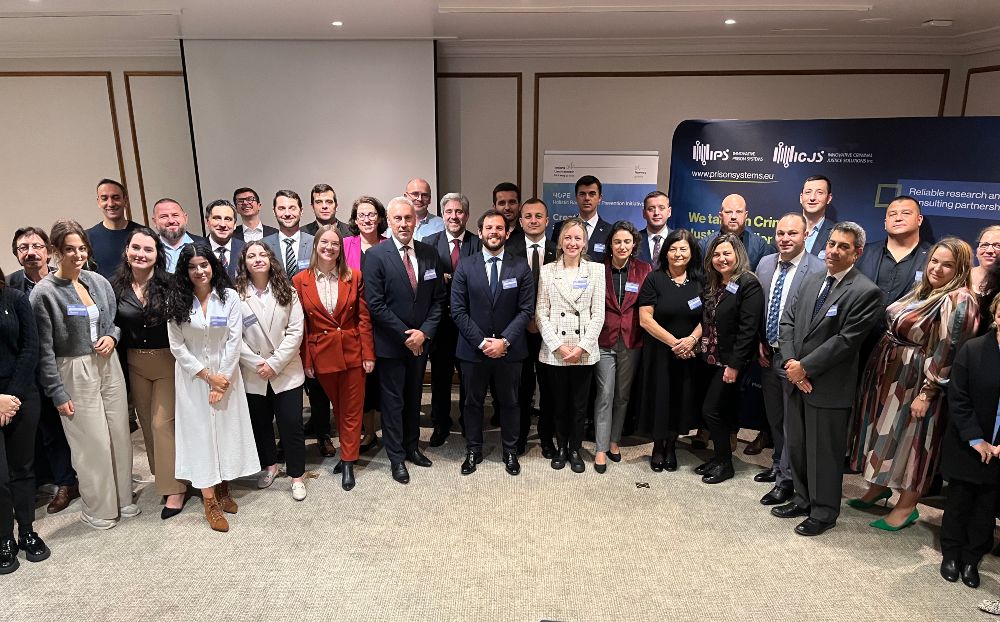
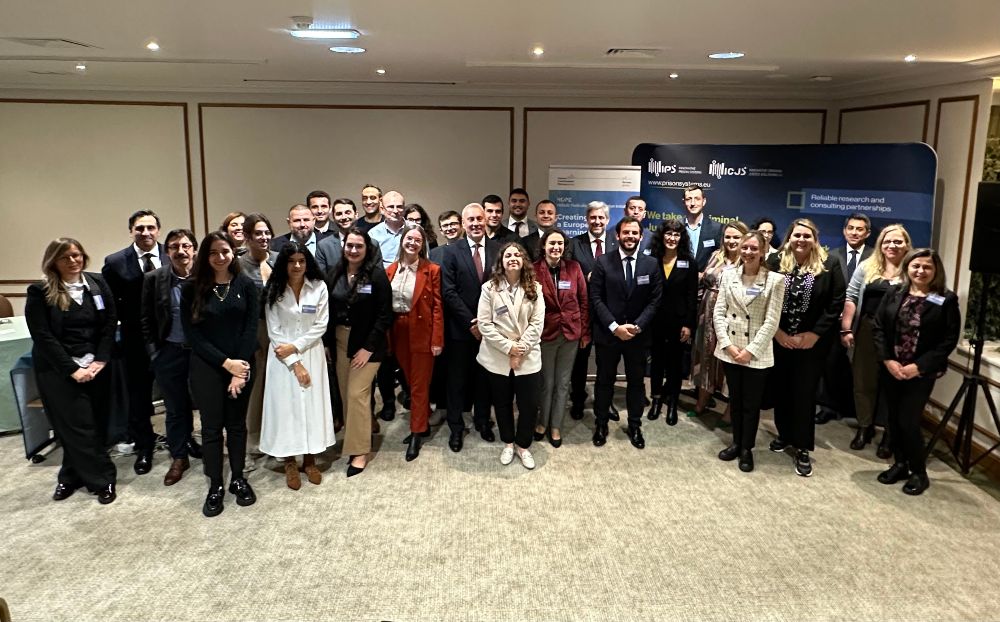
The diverse audience comprised researchers, law enforcement representatives, policy and programme coordinators, as well as decision-makers from national prison and probation systems.
A Holistic Radicalisation Prevention Initiative built upon a solid foundation
The participants were invited to learn more about the HOPE project (Holistic Radicalisation Prevention Initiative), created to develop innovative and multidisciplinary training approaches, raise awareness, and foster overall knowledge on radicalisation prevention.
The initiative’s goal was to enhance competencies and improve results within a regional network of experts and prison and community professionals focused in the Western Balkans and Eastern Europe. The partnership worked together with frontline professionals and European authorities to find both holistic strategies and tailored approaches to address the distinct challenges each jurisdiction faces.
Pedro Liberado, Chief Research Officer of the hosting project partner, IPS_Innovative Prison Systems, welcomed the participants, emphasising the challenges of the “major battle” against radicalisation. The deliberate use of the term was meant to underscore the difficulty of introducing innovation and new, effective tools for prison staff, “not because there is no room for improvement, but [because it is a field] where resistance to change old practices and procedures tends to greater than in other areas”, he stated.
Mr Liberado highlighted the role of previous IPS_Innovative Prison Systems-partnered projects addressing radicalisation and violent extremism prevention, such as R2PRIS, recognised as a Best Practice by the EU, and other crucial initiatives. The HOPE project has built upon these projects, focusing on a holistic approach to preventing and countering violent extremism (P/CVE).
Consolidating prison and probation staff’s role in P/CVE by fulfilling training needs
Among some of the HOPE project’s European survey findings presented, Vânia Sampaio, IPS’ Head of Directory for Security and Criminal Justice Cooperation, highlighted a perceived lack of familiarity with P/CVE strategies and programmes by field professionals. Most questioned study participants do not consider prisons to be an environment prone to radicalisation, relying on observation or intuition instead of standardised tools. The need to improve multi-agency and international collaboration to ensure continuity on the follow-up and improve results was another standout conclusion of the project findings.
With these results, HOPE set out to create a series of training resources to contribute to know-how enhancement regarding radicalisation prevention and detection. The training offer includes a comprehensive background on the emerging problem of radicalisation, and aims to raise awareness on how prison, probation, and community professionals can contribute to improved detection of early radicalisation tendencies among inmates, probationers and the newly-released.
The blended learning training programme was already piloted with the target professionals in Bulgaria, Romania, Serbia, and Slovenia, with over 100 participants successfully concluding all training evaluations. Out of the engaging participants, 74% had never received training related to radicalisation, and the feedback regarding the relevance and benefit of the training in relation to their professional needs was overwhelmingly positive.
Trainees were eager to learn more about preventing radicalisation and extremism in their national and professional settings and receive more training and tools to implement in their daily professional activity.
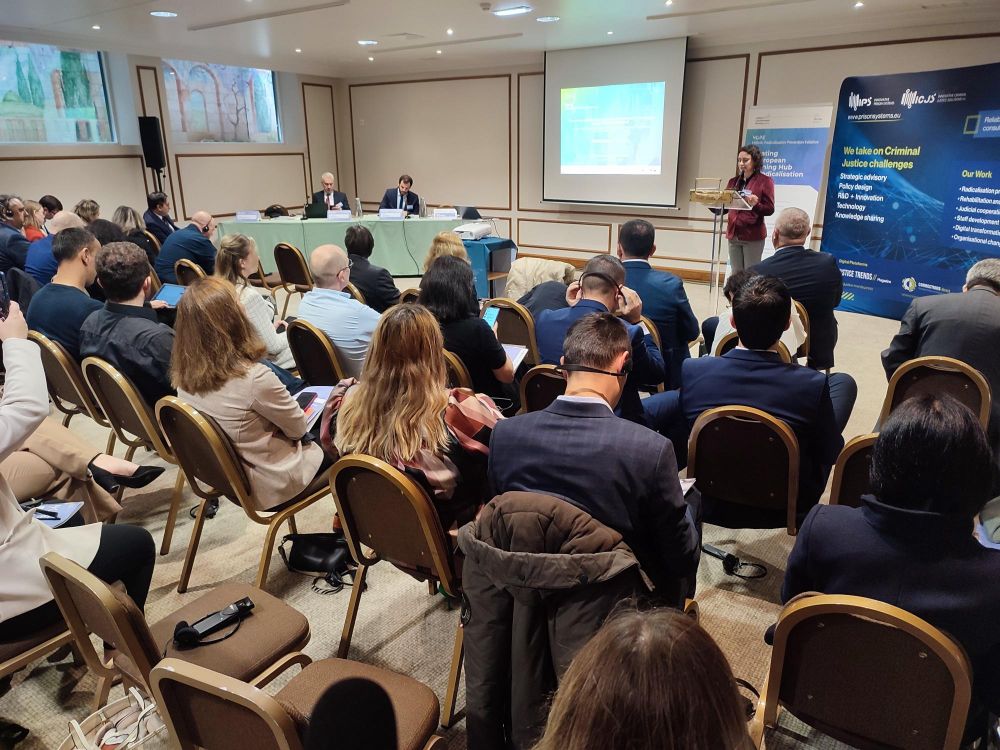
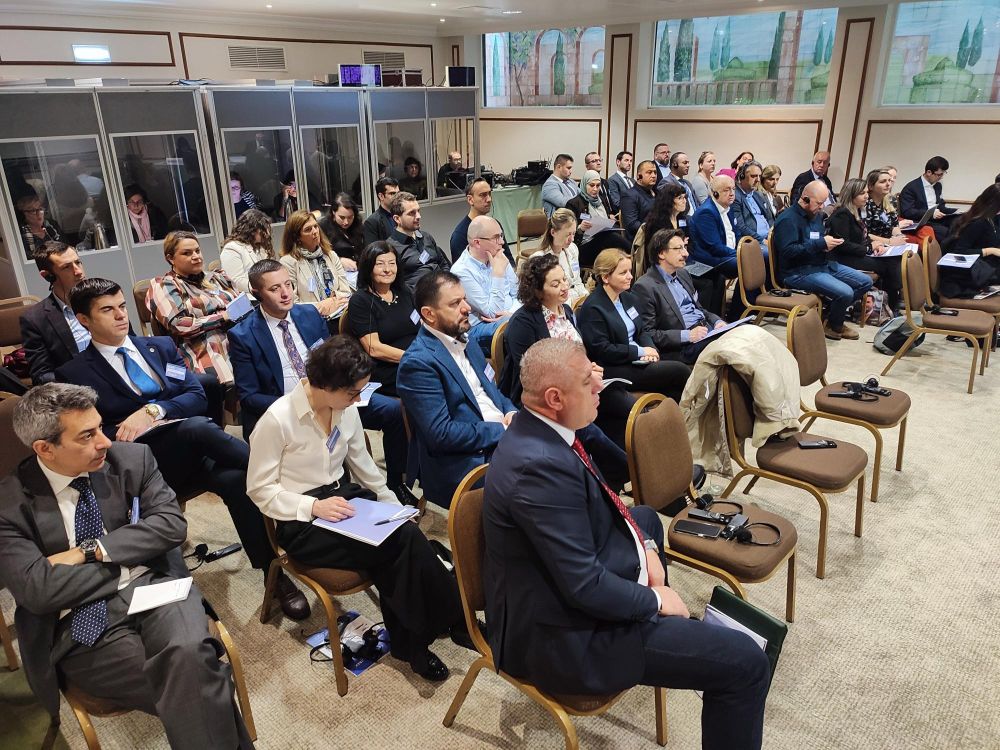
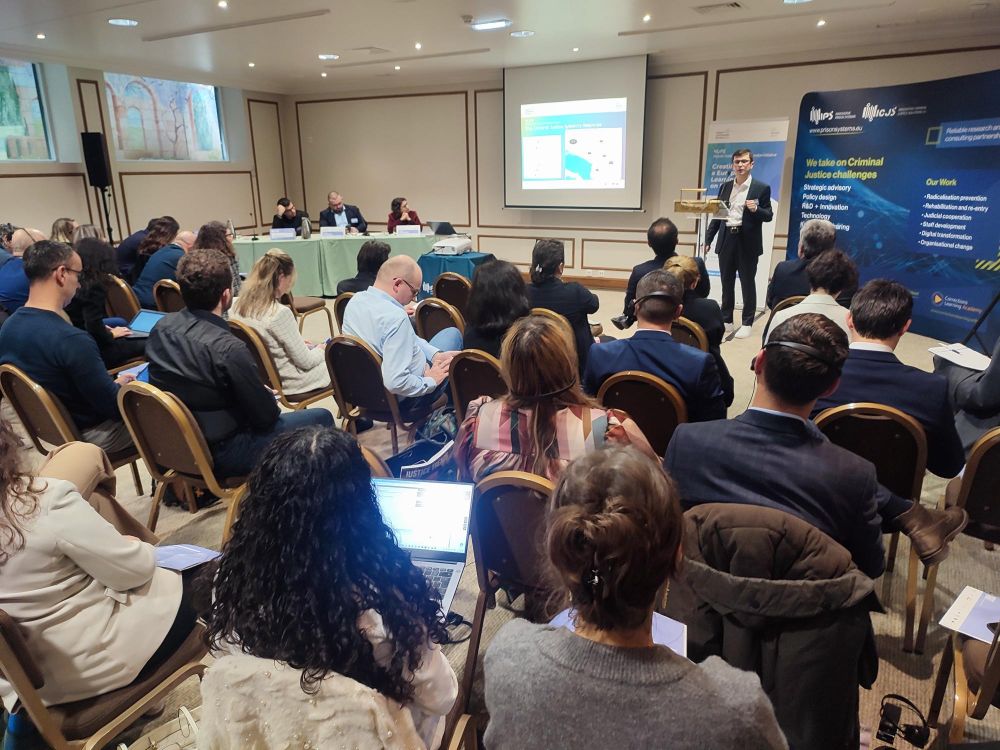
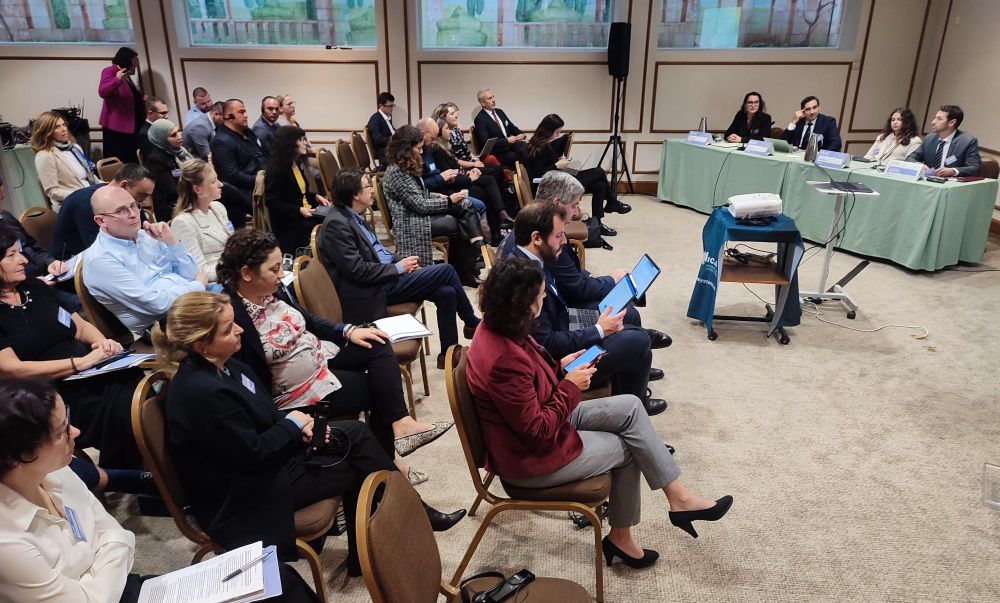
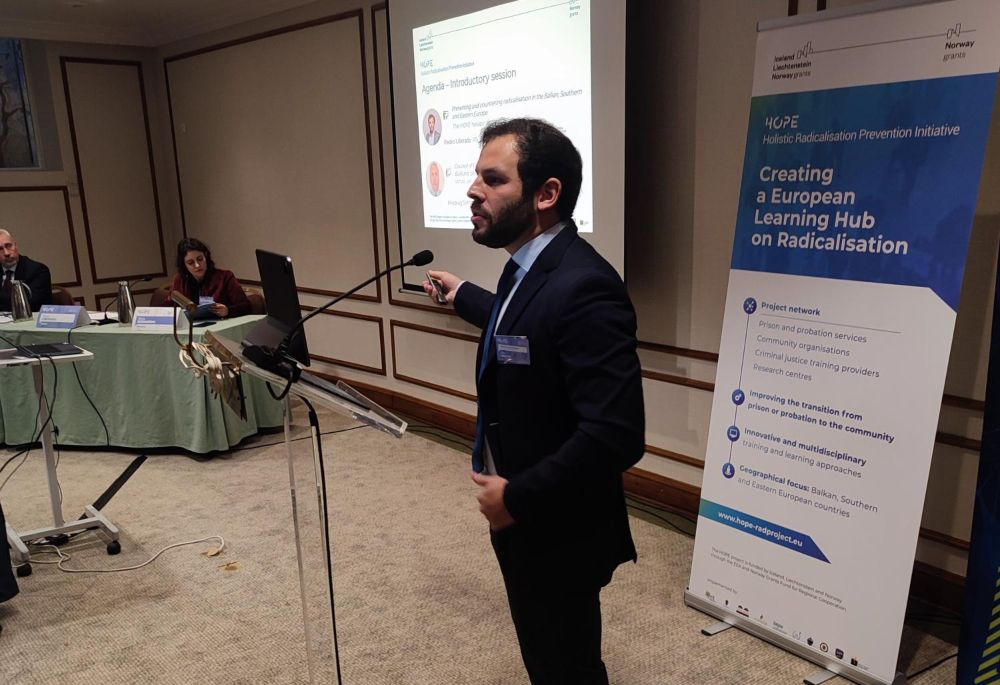
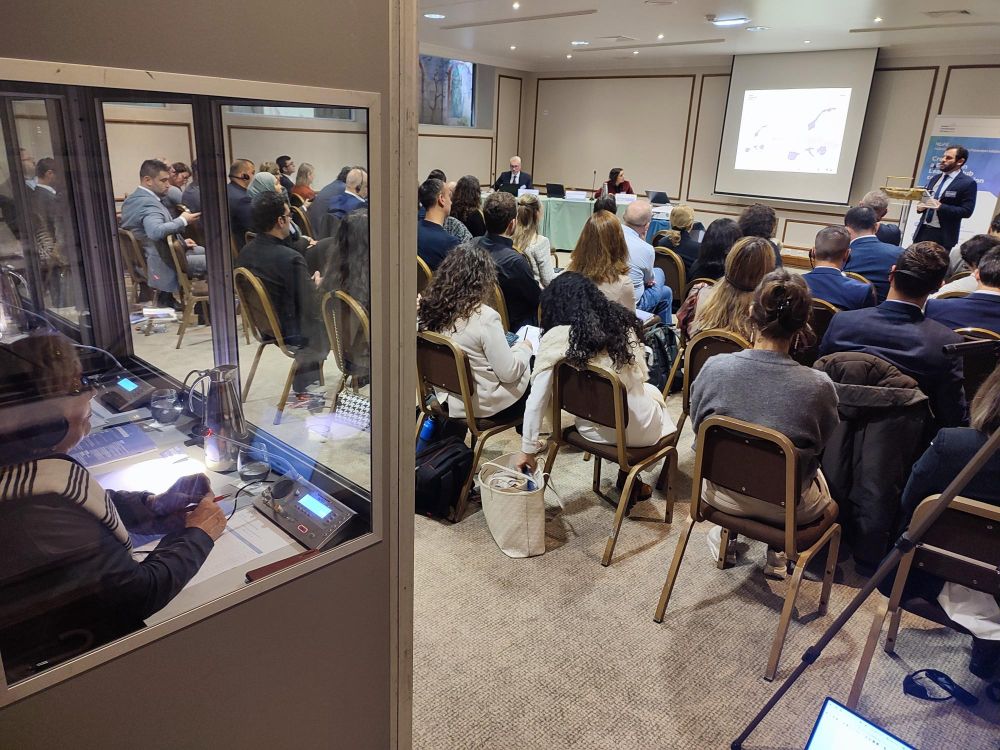
The HOPE Mentoring Scheme
The project partnership also presented the materials developed as a support and knowledge base for professionals implementing mentored interventions, such as disengagement and deradicalisation programmes using structured and systemic approaches. Professor Dr David Hansen, from the HOPE project partner, University College of the Norwegian Correctional Service, detailed the origin and breadth of these resources made available to practitioners.
This mentoring scheme takes into consideration the history and strengths of the mentees, underscoring that there are underlying issues in radicalisation processes beyond ideology. The resources include 59 lecture videos with detailed explanations of frameworks for understanding the mentee and their reactions, strategies for presenting counter-narratives from legitimate sources, and structured approaches to explore motivations and desire for change.
A European Learning Hub on Radicalisation
To bridge the gap in multi-agency and international collaboration, the project set out to create a HOPE Radicalisation Network of experts and practitioners to serve as an avenue for promoting discussion and cooperation among stakeholders from different sectors and jurisdictions, and a hub where they could access the training and support materials created or made available by the project, including over 300 literature resources to read and download, including reports, scientific articles, handbooks, manuals, and international strategies.
Beyond presenting the community built around this online hub, Sara Afonso, Head of IPS’ Directory for Communitarian Inclusion and Social Development, detailed how this networking went outside its digital limits. Through presential and online events, the partnership gathered stakeholders to discuss common issues and solutions in 8 “Transnational Thematic Workshops”, country-specific challenges in 3 “HOPE Regional Talks”, and how to engage decision-makers and implement HOPE’s approach to P/CVE in one “High-Level Seminar”, and a “Transnational Policy Forum” gathering European policymakers.
Through these efforts, the HOPE project engaged over 650 stakeholders from every organisational level to discuss how to holistically prevent and counter radicalisation and violent extremism, enhance cooperation, and achieve effective results in the reintegration and rehabilitation of persons holding violent extremist ideologies.
A broad-ranging and active discussion
Following this expertise interchange spirit, once again, the HOPE International Conference was the stage for invaluable transnational discussions and knowledge-sharing.
Josep García-Coll, researcher at the project partner Euro-Arab Foundation for Higher Studies, presented conclusions from a state-of-the-art analysis, focusing on regional specificities and issues related to radicalisation and violent extremism. Notably, he underscored the European survey conducted by the project, revealing challenges in disengagement and deradicalisation. Respondents highlighted the efficacy of changing narratives and restorative justice in disengagement programmes but noted the difficulty in deradicalising high-ranking members of terrorist groups. The lack of security measures and the need for their implementation were emphasised, along with the preference for disengagement over deradicalisation.
From the University of Sarajevo, researcher Mirza Buljubašić presented findings on departures and returns from the Western Balkans to Syria and Iraq between 2012 and 2019, exploring the regional challenges, and the criminal justice’s response in dealing with returning foreign terrorist fighters. He emphasised the need for a regional strategy to prevent all forms of extremism, considering factors such as repatriation, cumulative prosecutions, and specific strategies for women, youth, and children.
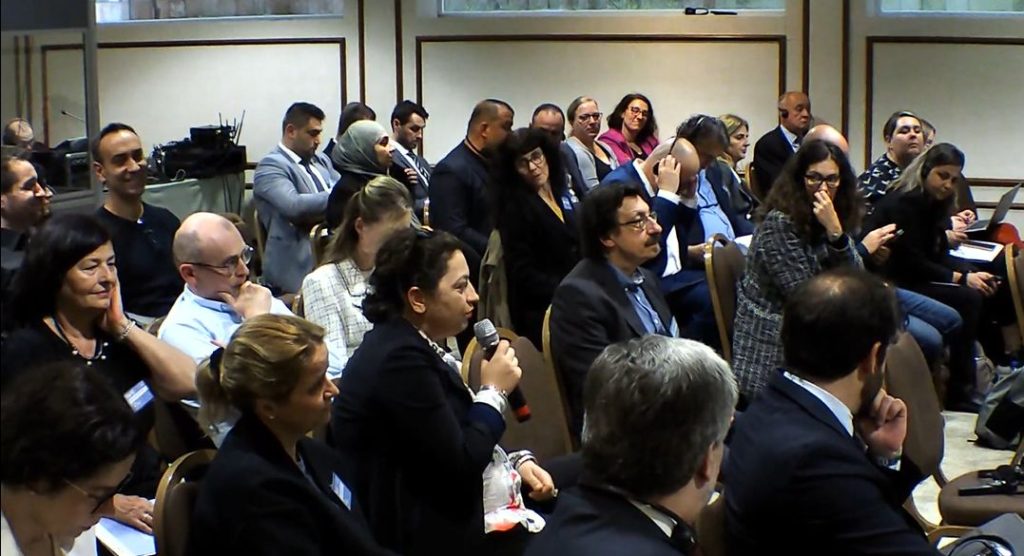
Felipe Pathé Duarte, Assistant Professor at NOVA School of Law, delivered a keynote speech focusing on the layers of violent extremism in Serbia and Kosovo. He addressed hybrid threats, political instability, and the weaponization of social media, emphasising the danger of misinformation.
Representing the Council of Europe (CoE), the Regional P/CVE Programme Manager, Predrag Šofranac, outlined the organisation’s dedicated initiatives in the prevention and countering of violent extremism, including the development of comprehensive guidelines and handbooks. During his presentation, Mr Šofranac emphasised the pivotal role played by the Cooperation in Police and Deprivation of Liberty Unit, especially in assisting Western Balkan countries in enhancing penitentiary capacity to manage individuals associated with extremist views and/or criminal activities. He detailed various programmes developed in the region promoting capacity building and penitentiary cooperation.
Particularly he mentioned the importance of collaboration and
multi-agency cooperation beyond the prison and probationary spheres,
citing the HOPE Project as a noteworthy example of a focused and
successful initiative.
The event’s agenda closed with a roundtable discussing how to ensure sustainability and end-user ownership through multi-sectoral collaboration in the region. Moderated by IPS’ CEO, Pedro das Neves, the panel had insights from CoE’s Predrag Šofranac and Radmila Borozan, Senior Project Officer, as well as Barbara Paoletti, representing OSCE’s Action Against Terrorism Unit in the Transnational Threats Department, and Jason Aplon, Peacebuilding Unit Lead at the International Organisation for Migration.
This International Conference, hosted by IPS_Innovative Prison Systems, marked a significant milestone in the collaborative effort to prevent and counter radicalisation and violent extremism. The comprehensive strategies and insights shared during the event are poised to shape future policies and procedures in the ongoing battle against this persistent threat.
Know more about this project

DIGIDEM
Fostering Digital Democracy and Citizenship in Higher Education
HOPE is led by IPS_Innovative Prison Systems (Portugal) in partnership with organisations from several countries, namely the University College of Norwegian Correctional Service (Norway), Agenfor International Foundation (Italy), the Euro-Arab Foundation for Higher Studies (Spain), the Bulgarian Association for Policy Evaluation (Bulgaria), the Bulgarian General Directorate “Execution of Sentences” (Bulgaria), the Bucharest-Jilava Penitentiary (Romania), the Helsinki Committee for Human Rights in Serbia (Serbia) and the Slovenian Probation Administration (Slovenia).
For more information about the HOPE project and the HOPE Radicalisation Prevention Network, go to www.hope-radproject.org
Related projects

CEDAR
Continuing Education Against Radicalisation

COOPERHATE
Delivering a comprehensive approach to preventing, reporting, investigating and prosecuting hate crime and hate speech-related incidents in Portugal

EUTEx
Developing a European framework for disengagement and reintegration of extremist offenders and radicalised individuals in prison

FUTURE-ART
Sentinels of the Future: Together to Eradicate Human Trafficking

IN2PREV
Law enforcement and community cooperation and training approach to prevent radicalisation by ensuring refugees’ successful inclusion

INDEED
Strengthening a comprehensive approach to preventing and counteracting radicalisation based on a universal evidence-based model for evaluation of radicalisation prevention and mitigation

INTEGRA
Integrated Community, Probation and Prison Services Radicalisation Prevention Approach

KOBAN
Identifying future capabilities for Community Policing

MIRAD
Multi-Ideological Radicalisation Assessment towards Disengagement

PARTES
Participatory Approaches to Protecting Places of Worship
Related news

IPS has joined a new partnership focused on enhancing the prevention, reporting, and investigation of hate crimes and hate speech in Portugal
Read More »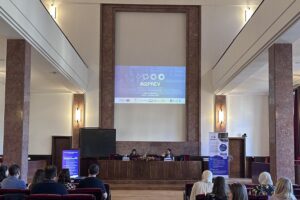
IN2PREV Final Conference highlights cross-sector collaboration for refugee inclusion and radicalisation prevention
Read More »
Standing united against hate: A national effort to prevent and tackle hate crime and hate speech in Portugal
Read More »
New IPS-led initiative unites efforts to protect religious communities, schools, and places of worship
Read More »
IPS contributes to shaping EU’s future agenda on radicalisation prevention at Brussels Town Hall meeting
Read More »



